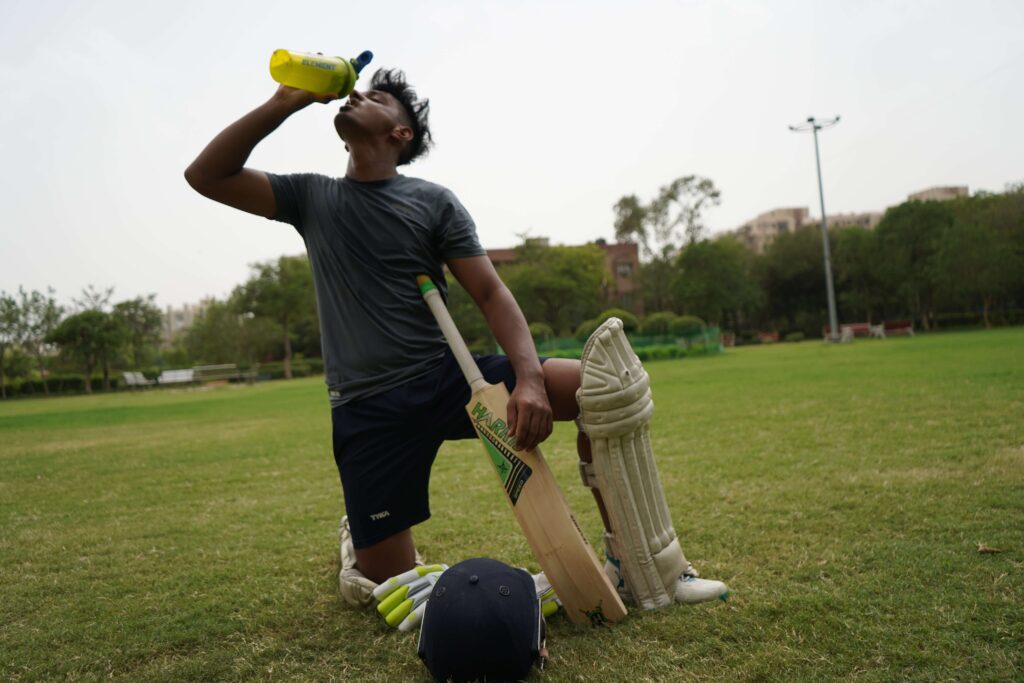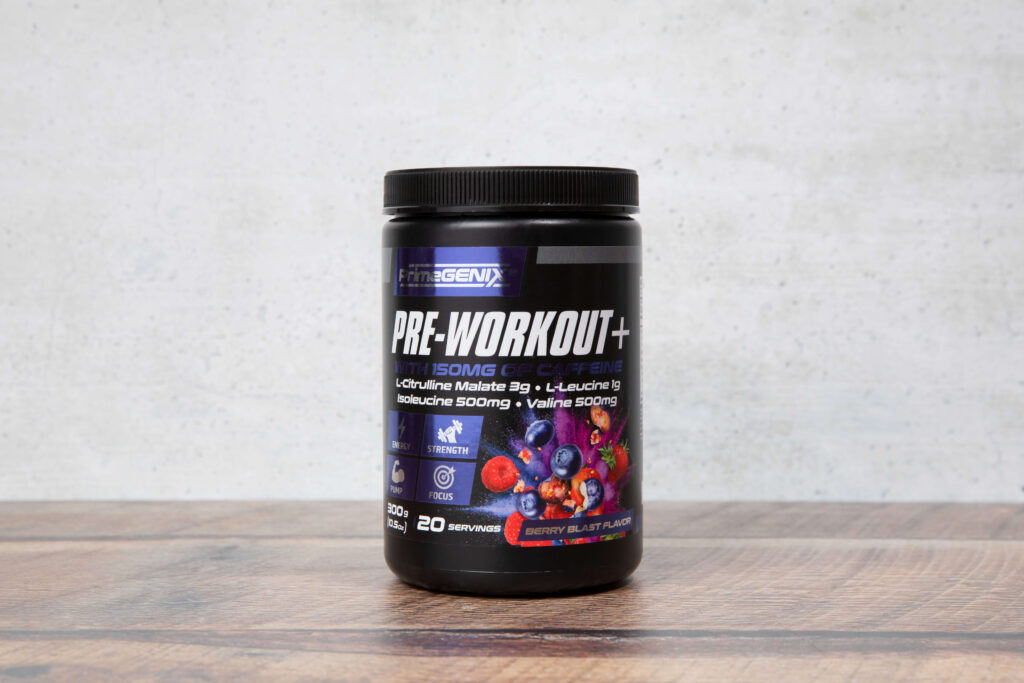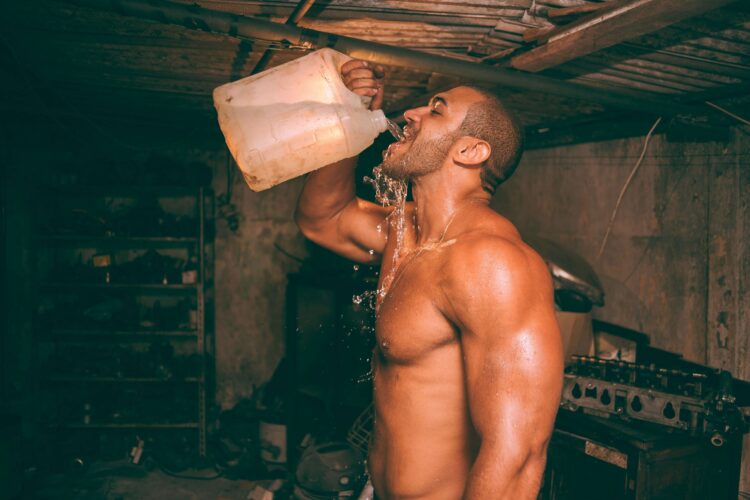Hydration is a cornerstone of fitness and peak performance, significantly influencing the journey and the results. The symbiotic relationship between exercise and hydration is often underestimated, contributing to the difference between reaching new heights and facing unnecessary setbacks.
Today, we aim to unravel the essentials of pre and post-workout hydration, leveraging insights from a recent study that illuminates key rehydration considerations for athletes and fitness enthusiasts. As we strive to understand optimal hydration, we explore how sodium and carbohydrates contribute to adequate rehydration.
Join us as we uncover the secrets to achieving peak hydration for optimal workout performance and muscle recovery.
The Significance of Hydration in Exercise
Hydration is the linchpin in the intricate machinery of physical activity. The human body, about 60% water, requires adequate hydration to function optimally.
Maintaining optimal fluid levels, particularly during exercise, becomes synonymous with achieving peak performance. Even mild dehydration can significantly impact performance, recovery, and overall well-being.
Next, we examine why hydration is crucial for performance, from maintaining body temperature to transporting nutrients to preventing injury.
Cooling the Flames: Thermoregulation
Thermoregulation, the body’s natural cooling mechanism, is central to hydration’s role during exercise. Sweating is the body’s physiological response to exertion, facilitating heat dissipation. When fluid levels are insufficient, this cooling process becomes less efficient, leading to increased fatigue and a heightened risk of heat-related issues.
The Hydrated Highway: Nutrient Transportation
Hydration is about more than quenching thirst. Inadequate hydration compromises nutrient transportation, compromising the delivery of essential elements to muscles and organs. Impeding this vital and complex highway system hinders energy production and impairs overall exercise performance.
The Toll of Dehydration: Endurance Erosion
Endurance is the bedrock of athletic prowess and is acutely sensitive to hydration status. Athletes may be unable to sustain the intensity and duration of their workouts due to premature fatigue and reduced stamina caused by dehydration. Inadequate hydration may also impair concentration, diminishing the ability to push through challenging workouts.
Beyond Immediate Performance: Muscle Resilience
Dehydration’s impact extends beyond the confines of a workout session, impacting more than just your immediate performance. When water balance is disrupted, injuries become more prevalent as the elasticity of tissues is compromised. Tendons and ligaments, essential for stability and flexibility, lose their suppleness when deprived of adequate fluid.

The Ripple Effect of Dehydration
Prioritizing hydration is paramount to unlocking your full physical potential. This goes beyond simply drinking water during a workout. It involves strategic hydration to ensure the body is prepared for the demands of exercise and supported in its recovery afterward.
Dehydration undermines the resilience of muscles, joints, tendons, and ligaments, escalating the risk of cramps, strains, and injuries. It impedes endurance and our ability to cool ourselves efficiently. The ripple effect of inadequate hydration emphasizes the need for a holistic approach to hydration that spans pre-, during, and post-exercise.
The following sections will explore pre- and post-workout hydration strategies, empowering you to elevate your performance to new heights.
Pre-Workout Hydration Strategies
It’s essential to lay the groundwork for a successful exercise session to master pre-workout hydration. The interplay of timing, fluid choices, and electrolyte balance sets the stage for enhanced performance, improved endurance, and a lower risk of dehydration-related complications.
The Temporal Equation: Optimal Pre-Exercise Hydration Timing
The first step on the path to optimal pre-workout hydration is strategic timing. Hydrating well before physical activity is essential to ensure the body enters every training session adequately hydrated.
Consuming 16-20 ounces of water 2-3 hours before exercise generally lays a solid foundation for adequate hydration. Keep in mind that individual factors such as climate, body weight, and the intensity of the impending workout play a role in hydration needs.
Personalizing Fluid Intake: More Than Just Water
One size does not fit all in hydration strategies. Individuals vary in their sweat rates, tolerance to fluid intake, and electrolyte needs.
While water remains a fundamental choice for pre-hydration, integrating water-rich foods and electrolyte beverages enhances the body’s readiness for physical exertion. Fruits like watermelon and cucumber contribute essential vitamins and minerals while providing hydration.
Personalizing pre-workout hydration is vital based on factors like fitness levels, type of exercise, and body composition. Experimentation and self-awareness are critical tools in finding the optimal pre-exercise hydration routine.
Sodium’s Crucial Role: Strategic Electrolyte Consumption
Sodium plays a key role in fluid balance, staving off dehydration during training by helping the body retain water. The inclusion of electrolytes, particularly sodium, is crucial in pre-workout hydration.
Electrolyte-rich beverages or sports drinks are particularly beneficial when engaging in extended or intense workouts. These drinks offer a comprehensive solution to support sustained performance through a combination of fluids, carbohydrates, and electrolytes. The sodium levels in these drinks are significant for effective pre-hydration.

Post-Workout Hydration Strategies
As we transition from the preparation phase to the execution of the workout, it’s necessary to shift our focus to the equally crucial post-workout hydration phase, where recovery takes center stage. A strategic blend of rehydration, carbohydrate replenishment, and protein intake sets the foundation for efficient recovery.
Rehydration Principles: The Swift Dance of Recovery
The body enters a recovery phase following a workout that demands swift rehydration. Adequate hydration post-workout is essential for replenishing fluid losses, jumpstarting muscle recovery, and supporting sustained recovery. One commonly accepted strategy is to replace each pound lost during exercise with 16-24 ounces of fluid.
Tailor post-workout hydration to personal needs, considering workout intensity, duration, and individual tolerance. Monitor for signs of dehydration, such as persistent thirst or dark urine, and adjust post-exercise hydration strategies as needed.
The Timing Puzzle: When to Rehydrate
As critical as timing is to the pre-workout phase, it is equally significant in post-workout hydration. The body is most receptive to nutrient absorption within 30-60 minutes following physical activity.
Capitalizing on this window, commonly called the “glycogen window,” refuels energy stores. Consume a well-balanced post-workout meal or snack to accelerate recovery during this time.
Carbohydrates and Recovery: Fueling the Revival
Glycogen stores serve as the primary energy source during exercise. Targeted carbohydrate consumption supports the recovery process, stimulating the release of insulin and replenishing glycogen stores. Replacing glycogen stores post-workout is imperative for an efficient recovery, ensuring sustained energy levels for future workouts.
The ideal carbohydrate intake varies based on individual factors, but a general guideline is to aim for between 0.5 to 0.7 grams per pound of body weight. Sports drinks with optimal carbohydrate levels are invaluable allies in this recovery process.
Protein’s Role: Rebuilding and Repair
Protein assumes a central role in post-workout recovery. It supports muscle repair and growth while minimizing the impact of exercise-induced micro-tears.
Incorporating protein-rich foods or supplements in the post-exercise diet accelerates recovery and supports muscle repair, boosting strength and resilience.
Remember to stay hydrated alongside a protein-rich post-workout meal or snack. Adjust portion sizes to fit your protein requirements, nutritional needs, and overall dietary goals.
Hydration Beyond Beverages
It’s time to shift from immediate recovery to sustained well-being, exploring hydration strategies beyond beverages. While beverages play a crucial role, embracing a holistic approach involves recognizing the substantial contribution of whole foods.
Fruits, vegetables, and high-water-content foods enhance rehydration while delivering essential vitamins, minerals, and antioxidants. This holistic strategy ensures comprehensive recovery and supports overall wellness.
Water-rich foods, like watermelon, oranges, and berries aid in rehydration while providing a natural source of sugars for a quick burst of energy and antioxidants to combat exercise-induced oxidative stress.
Snacking on cucumber and celery sticks offers a refreshing way to increase fluid intake while providing fiber for digestive health. Coconut water is an effective natural rehydration alternative that is rich in electrolytes and low in calories.
Soups and broths are warm, nutrient-rich post-workout snacks, supplying essential minerals and amino acids and supporting overall recovery. Diversifying your hydration sources enhances your fluid balance and nutrient intake for a well-rounded hydration strategy.
Making Hydration a Habit
Consistency is the heartbeat of any strategy, including adequate hydration. Establishing a routine that prioritizes water intake ensures your body is ready for whatever physical challenges lie ahead.
Set yourself up to succeed:
- Carry a reusable water bottle.
- Set hydration reminders.
- Infuse variety into your fluid and food choices.
Make hydration an integral part of your lifestyle and witness its transformative impact on your health and performance.

Optimize Your Hydration, Maximize Your Results
Hydration is the conductor of the symphony of fitness, influencing every note from performance to recovery. Mastering the art of pre- and post-workout hydration requires making strategic choices, personalization, and understanding the body’s needs.
As you prepare for your next training session, remember that hydration extends beyond a water bottle. Take advantage of the hydrating power of whole foods and incorporate water-rich fruits and vegetables into your routine. Consider the impact of electrolyte balance, nutrient replenishment, and timing.
For those seeking an extra edge in their workouts, try PrimeGENIX® Pre-Workout+ to elevate your workout experience. This expertly crafted supplement enhances energy, focus, and endurance without the excessive jitters or crashes using a synergistic blend of natural ingredients.
Optimal hydration is your secret weapon for achieving peak performance and maximizing results. Listen to your body, create a hydration strategy, and let every drop take you one step closer to strength, resilience, and well-being.

